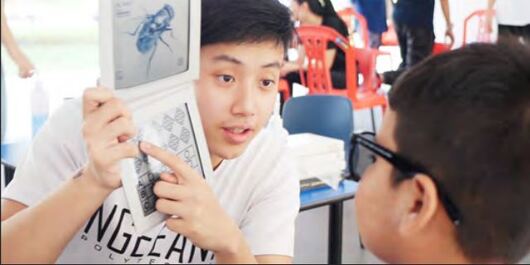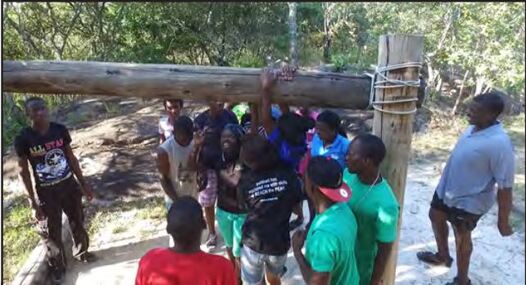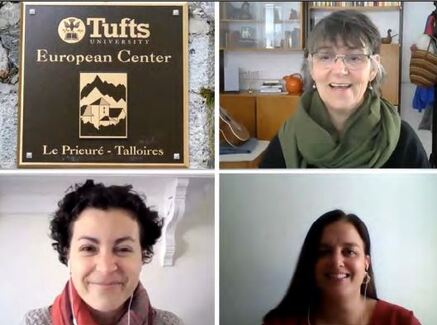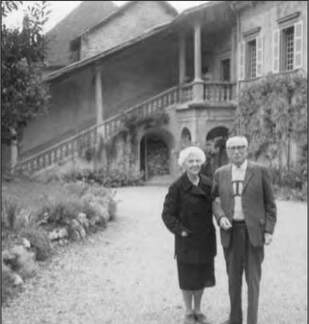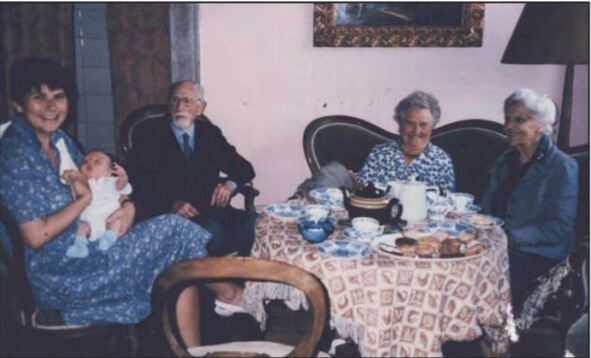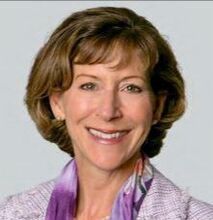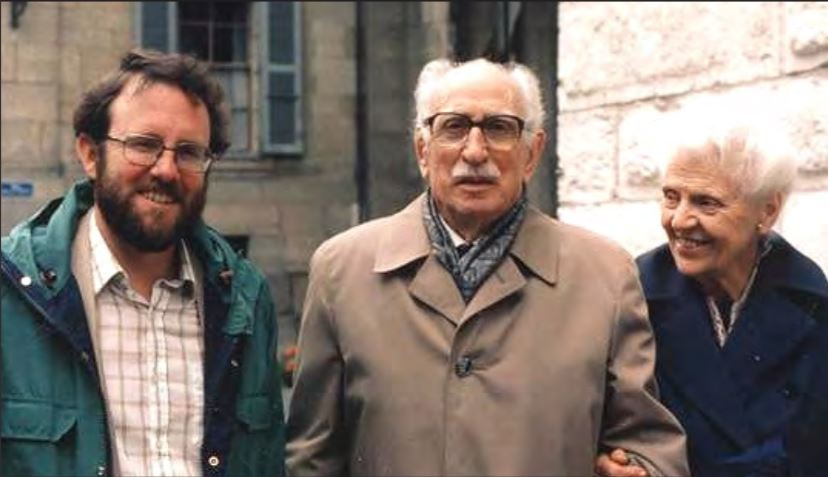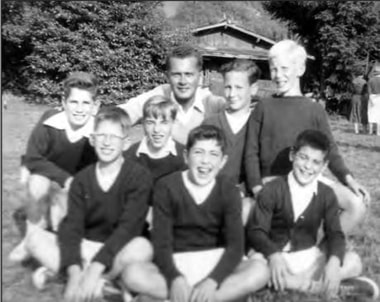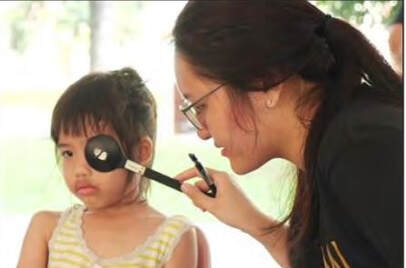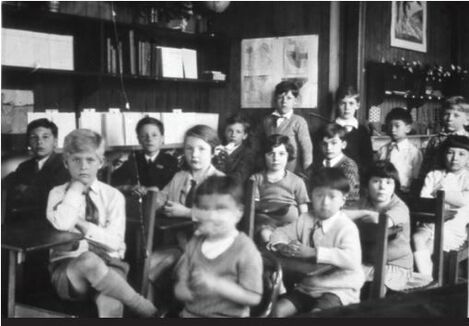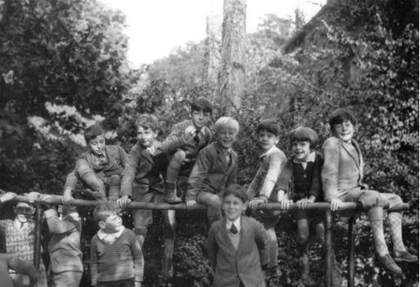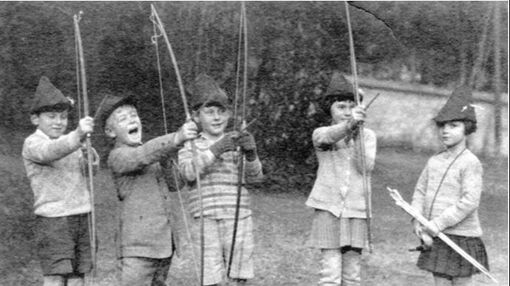
|
The MacJannet Prize for Global Citizenship, launched in 2009, recognizes exemplary university student civic engagement programs around the world. Today the Prize is a key element in the MacJannet Foundation’s work to build a community of global citizens. The Prize is sponsored jointly by the MacJannet Foundation and the Talloires Network, a global association of 417 universities in 79 countries on six continents, all committed to developing student leaders who are actively engaged with society. In addition to providing international recognition to outstanding student initiatives for civic engagement and community service, the Prize provides a financial contribution and encourages communication among the groups to share their experiences and strengthen their effectiveness. In 2020, the deadline for Prize nominations coincided with shutdowns on many campuses due to the global coronavirus pandemic. Nevertheless, the competition received 19 nominations from 14 countries across six contents, only a slight decrease from the number received in 2019. Of these nominees, three were awarded prizes last June by a selection committee consisting of respected educators from member universities of the Talloires Network as well as representatives of the MacJannet Foundation. Three others were recognized for Honorable Mention. Producing ‘big-hearted students’ First Prize ($7,500): Service-Learning Programme, Ngee Ann Polytechnic (Singapore) Ngee Ann, a university with 14,000 students in nine schools, launched Service-Learning in 2016 as its signature pedagogy, becoming the first tertiary institution in Singapore to strategically integrate service learning into its core curriculum. All Ngee Ann students participate in at least one Service-Learning activity or project, tied to an academic module, applying the skills and knowledge from their course of study to address community issues. The program seeks to produce what it calls “big-hearted students who are passionate learners and globally smart professionals, while making a positive impact on society.” The program’s more than 400 instructors consult and work with community partners to ensure that projects meet identified community issues while achieving the courses’ academic goals. The projects cover a broad range of areas, such as education, employability, elder care, health, environment, and community development. Students are encouraged to play a role in shaping their projects. From 2016 to 2019, more than 16,800 Ngee Ann students participated in some 150 projects involving more than 70 partners. They can also continue ServiceLearning in their final year through civic internships (an option chosen by more than 500 students in 2019) and some 25 international community projects (which attract more than 600 students annually). With the arrival of Covid-19 in 2020, Ngee Ann had to quickly pivot to eService-Learning. Information sessions were held to help faculty re-design their projects so they could be carried out remotely. More than 20 ServiceLearning projects operated in the April 2020 semester. Some students embarked on projects to tackle Covid19-related issues themselves with various community partners. For example, a group of students started an Instagram campaign and gathered 20 donated laptops in just over a week. The laptops were then given to children from low-income families for home-based learning during Singapore’s Covid-19 lockdown period. Another team is now running an online campaign, “SOAP-lution,” to solicit donations of soap and other amenities for care packs to be distributed to migrant workers in Singapore. Also, Ngee Ann’s School of Health Sciences developed a free 40-minute short course, “Infection Prevention and Control 101,” that offers basic knowledge of how infection spreads, and how to protect. The original course in English has since been translated into 14 languages. Developing potential leaders Second Place ($5,000): paNhari Program, University of Zimbabwe (Zimbabwe) The paNhari Program, established in 2005 as a studentled project, empowers university students to become civically engaged through social entrepreneurship and to use innovation and business principles to improve the world. paNhari helps students discover their potential for leadership and develop successful futures for their communities by adopting a possibility-oriented approach to life in a country where political and economic instability can make it difficult for young people to participate in civic projects. In the wake of the Covid-19 pandemic, Zimbabwe’s nationwide lockdown and travel restrictions have restricted students’ ability to engage with communities. Nevertheless, paNhari students have found innovative ways to continue civic engagement activities. Using technology platforms, they have adopted virtual interactions with women and youth in the informal work sector to assess and understand how their livelihoods have been impacted by the pandemic. With the support of the MacJannet Prize, students are now providing tailored entrepreneurship training and small “revolving” loans to small struggling businesses, many run by women. Educating the unschooled Third Place ($2,500): Al-Qalam Program, National University of Sciences and Technology (Pakistan) Al-Qalam program, launched in 2015, is a student organization that provides educational opportunities to children who are out of school due to their families’ financial limitations— a serious problem in a country where more than 40% of children under 16 are not enrolled in school. During last year’s coronavirus lockdown, the university closed and volunteers could not move easily around their communities or seek funds. But Al-Qalam Program student volunteers took it upon themselves to set up an online donation campaign, and through their own networking they helped parents on a case-to-case basis so their children are able to remain in school. Volunteers also collected new laptops and desktops to donate to families so children could continue with online learning. Honorable Mention: Pontificia Universidad Javeriana Cali’s Programa Formación Javeriana para el Cambio Social y la Paz (Colombia). As a training ground for social change, the university has integrated experiential learning and community engagement into academic programs throughout the institution. Its students create spaces for the exchange of knowledge between communities and academia, transforming participants’ visions of themselves as citizens and professionals. Universidad Veracruzana’s Intercultural University Student Projects (Mexico) offers degree programs in four regions whose residents lack access to higher education and related opportunities. It also offers a master´s degree in Nahua Language and Culture, the first program in the Americas completely offered in an indigenous language. Community Health Nature Renewal Project at Muhimbili University of Health and Allied Science (Tanzania), seeks to improve the health of Tanzania’s people by planting native trees and plants back into the gardens, school grounds, roadsides, and byways of the Ilala District, an ecosystem that has been 90% destroyed.
5 Comments
Our 2020-21 MacJannet Fletcher Fellows confront the pandemic Note: Since 1967, an endowment from Donald MacJannet has helped support international studies among graduate students. Initially this program focused on an innovative exchange program between the Fletcher School of Law and Diplomacy at Tufts University and the Graduate Institute of International and Development Studies in Geneva. By now the Fletcher-Geneva exchange program numbers more than 200 alumni. The MacJannet grant has also provided support to an additional large number of European students studying at Fletcher. Until the global coronavirus pandemic struck in 2020, the MacJannet Foundation sponsored an annual dinner at the Fletcher School to honor these Fellows. What should have been the tenth annual dinner was suspended in December 2020, but the Foundation hopes to resume this tradition in the fall of 2021. Meanwhile, the Fellowship program itself continued, albeit at a slightly reduced scale. Below, the four MacJannet Fletcher Fellows for academic year 2020-2021 discuss their hopes and dreams— for themselves as well as the planet. —ANTHONY KLEITZ 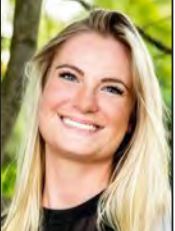 Real-life problem solving Clarisse Marcella Alpaert (Belgium): I am originally from Bruges, Belgium. As an undergraduate at Ghent University, I studied business economics and majored in corporate finance. Tufts University’s MALD program (Master of Arts in Law and Diplomacy) interested me because it offers me a broader perspective on key dynamics in the political economy of development while familiarizing me with new ways to address global challenges. Though this academic year has not been what anyone expected, Fletcher has been a rewarding and challenging experience. Some of my favorite moments from this year include becoming a co-president of the Fletcher Social Investment Group’s leadership board and a member of the Wharton School’s MBA Impact Investment Network & Training competition at the University of Pennsylvania. It allowed me to continue to demonstrate a proactive and multidisciplinary approach to problem solving while working within a cross-functional team of a high caliber. I’m grateful to the Donald R. MacJannet Scholarship for supporting my journey toward a more holistic approach to international business and finance. 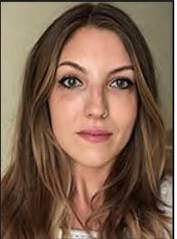 Quest for social justice Amaia Elorza Arregi (Spain): I came to Fletcher from the Basque region in the north of Spain. As an undergraduate, I studied political science at the London School of Economics and Law at the Complutense University of Madrid. I have been fascinated by a variety of courses focusing on gender as well as religion and conflict in the Middle East and South Asia. My main goal for my graduate studies was to broaden my knowledge and analytical skills in these areas, in preparation for a career in human rights and social justice, both at home and in the Middle East. Fletcher’s master’s program in Law and Diplomacy is allowing me to do that. I am currently finishing my capstone while working as a teaching assistant and research assistant at Fletcher. I have also applied to political science Ph.D. programs, and if accepted, I will start my doctoral studies in the fall of 2021. Undoubtedly, this career path would not have been possible without Fletcher. This is one of the main reasons why I deeply appreciate the generous contributions of the Donald R. MacJannet Scholarship. I would not have been able to study at Fletcher without financial aid; and right now, I cannot imagine my life without all of these professional and personal experiences. I am really grateful to be a part of this vibrant, challenging, unique community. 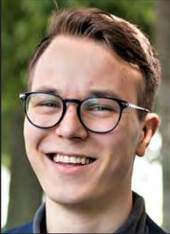 Cross-Atlantic understanding Kyrre Berland (Norway): I am a native of Norway who studied Euro-Asian Affairs as an undergraduate at Sciences Po Paris. Between the wide knowledge I got from my French education and my late mother’s humanitarian work in rural Bhutan before my birth, it seemed logical to me that studying peacebuilding at The Fletcher School would give me an excellent grounding to work for the alleviation of human suffering. This year, I was a research assistant at The Fares Center at Fletcher, exploring inter alia the financing of contemporary conflict on the Horn of Africa. Having worked as a trainee for the Norwegian Ministry of Foreign Affairs on human rights issues at the United Nations in Geneva, I feel confident that fostering cross-Atlantic understanding is of fundamental importance for peace and friendly relations. In addition to my classes, I have participated in The Fletcher Forum of World Affairs, Fletcher’s renowned foreign policy journal. More importantly, I have formed deep friendships with peers, even though our meetings have necessarily been virtual in this time of pandemic. The Fletcher School is indeed a community in which I thrive and grow. And the Donald R. MacJannet Scholarship has been fundamental in enabling me to pursue these studies at Fletcher. 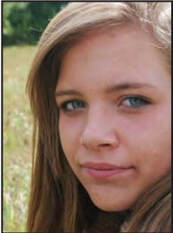 Virtual, but tight-knit Hélène Ries (France/ Switzerland): After earning an undergraduate degree at Pomona College, where I focused on economics, I worked for a public health NGO that taught me the importance of strong relationships between the private and public sector on a global level. I thus decided to attend the Fletcher School, where interdisciplinary work is at the center of all opportunities and courses offered. Actually, coming to the Fletcher School had been a dream since I started my professional career. The Donald R. MacJannet Scholarship has enabled me to pursue a Master of Arts in Law and Diplomacy at Fletcher. Through its International Business Relations concentration, I have learned more about public-private partnerships, my primary area of interest. My first semester at Fletcher confirmed the great first impression I had received from students of the school. In my year and a half at Fletcher (in Medford last year and virtually from Switzerland this year), I have had the opportunity to attend transformative events like the Conference on Gender and International Affairs, which enabled me to view public health issues from a different perspective. I have also interacted with Fletcher alumni now in prominent positions in the health sector, who gave me invaluable insights on their careers and proved the strength of the legendary “Fletcher Mafia.” The difficult past year we have all had to face proved once again how tight-knit and helpful the Fletcher community can be, both in Europe and at large. Thanks to this experience, I am currently launching a career in the pharmaceutical sector, through which I intend to dedicate myself to helping improve and save people’s lives worldwide. As I continue working on public-private partnerships for healthcare companies in my home country, Switzerland, it is clear that I will continue to benefit from the Fletcher network and curriculum for years to come. I hope one day to be able to help students achieve their goals just as you have helped me. By Gabriella Goldstein In March of 2020, the Tufts European Center was preparing for what promised to be a busy summer season at the Prieuré in Talloires. Our signature programs— Tufts in Talloires, Tufts in Annecy, and Tufts Summit— were well subscribed; our meeting and events calendar was full; and we were just a few weeks away from departing for Talloires. As we all know, the COVID-19 pandemic derailed all those plans. It sent Tufts students home from the main Medford campus to finish the spring semester remotely. It closed international borders and pushed France into lockdown. We on the Prieuré staff had no choice but to cancel all of our 2020 summer programs. Worse still, the timing and abruptness of the shutdown left us insufficient time to implement an alternative delivery method for our programs. To ensure that our season could still be productive, we re-directed our energies to other important projects for the Center: We created a new and updated website; we launched an electronic newsletter; we spent many hours attending webinars to improve our skills; and we began planning for summer 2021. Although the new year brought hope for mass vaccinations and herd immunity, it also brought COVID variants, new global pandemic surges, and continuing limitations on international travel— all of which made it very clear that a return to Talloires wouldn’t be possible for summer 2021. Will students buy it? With heavy hearts, in January we made the decision to adopt a virtual format for our 2021 Tufts in Talloires and Tufts Summit programs (for college and high school students, respectively). “I was disappointed, but also not surprised, given how the world is still attempting to manage the pandemic,” said Sarah Craver, assistant director of the European Center. “I recognize the paramount importance of keeping our communities safe, and of allowing our faculty (and ourselves) time to create a rich, exciting virtual experience for our students,” Obviously, a virtual community cannot replace face-to-face interactions, not to mention real life immersion in the HauteSavoie culture. Nevertheless, we are very excited about the new ways that we will provide engaging international content for students. All of our classes will include virtual guest speakers from Talloires/Annecy/Geneva and beyond, who will interact with students and help provide the international perspective we have always sought to include in our programs. If we can’t bring students to Talloires, we will bring Talloires to them! Will students buy this sales pitch? “Virtual learning definitely opens up some unique opportunities,” comments one of our former Talloires students, Taite Pierson. “It’s easier to see everyone in the class, and the chat function is really great for asking questions and making comments. I’ve been able to connect with people from all over the world in online learning environments, people I probably wouldn’t have otherwise met.” Tufts senior Lily Russell offered, “It can be challenging to take classes online, but it can also allow for so much more flexibility in my day, which I enjoy. There is no commute to class, and I have the freedom to be located where I wish to be. Ultimately, I do wish all of my courses were in person this semester. But online classes are still rewarding and engaging.” And how will we maintain the MacJannet legacy in all of this? “The MacJannet legacy is not only about a place—Talloires—it is about respect, diversity, understanding, and learning,” suggested our staff assistant, Kim DeCrescenzo. “The values go beyond a physical building and can be understood and appreciated from anywhere in the world.” Sarah Craver added, “Our approach reflects values that were crucial to the MacJannets: tenacity, persistence, and keeping learning at the heart of any experience. When I think of the times that the MacJannets lived through, I think of the challenges that they faced and the creativity with which they had to respond. We must not only reflect these values, but we must also strengthen our community by getting to know our students well and developing an environment of support and rich learning that they will remember for a long time!” For the Tufts European Center, the summer of 2021 will present both challenges and opportunities. With a strong legacy to guide us, a healthy dose of energy and imagination, an incredibly dedicated staff and faculty, and a supportive community both in the U.S. and in Talloires, we are confident that it will be a very successful experience for all of us. As you see, we are heirs to the MacJannet tradition. What else could we be but optimists? Gabriella Goldstein is director of the Tufts European Center in Talloires, France. 1. The right person will come along By Sally Pym Shortly after I became assistant director of the Tufts European Center in Talloires, Charlotte MacJannet asked me to organize a concert for a young pianist and singer in MacJannet Hall at the Prieuré. In those days— the early 1990s— the director came to Talloires for only two weeks every summer, so the responsibility for Charlotte’s request fell entirely on my shoulders as the Prieuré’s de facto on-site manager. The date Charlotte specified was a Sunday— normally my only day off. The program would require me not only to set up the hall that morning but also to publicize the event beforehand in Talloires and the nearby villages. But declining this task was not an option. Charlotte at this point was well into her 90s, the living soul of the Prieuré; she had been unfailingly gracious to me since my arrival; and in any case, Mrs. Mac was not someone you could reasonably refuse any request. The morning of the concert, as the staff and I set up the chairs and the piano in MacJannet Hall under Charlotte’s watchful eye, the pianist phoned to inform me that an emergency had come up and he would have to cancel his appearance. It was 11 a.m.; the concert was scheduled for 2 p.m. I was beside myself. In just three hours, the audience would arrive— an audience I had personally drummed up. As I saw it, my credibility as the Prieuré’s new assistant director was on the line. To my surprise, Charlotte seemed not the least bit perturbed. “It’s all right, my dear,” she said serenely. “Come with me.” She led me outside, walked me halfway down the front steps of the Prieuré— she was pretty agile even in her 90s— and bade me sit down beside her on the steps. Here she reassuringly put her hand on my knee. “Sally,” she explained, “if we wait here, the right person will come along.” She was aware of my stress but seemed oblivious to the gravity of our quandary. We sat there quietly together until, to my astonishment, about 15 minutes later, a stranger walked down the Prieuré driveway. Together, Mrs. Mac and I descended the steps to greet him. In the process of making our introductions, we asked him almost flippantly if by any chance he was a pianist. When he answered affirmatively, Charlotte invited him to come upstairs and perform at our concert that afternoon. And so he did. That was a wonderful lesson for me as an administrator: If things don’t turn out exactly as you planned, have faith that the unknown alternative might turn out to be just as good or even better. Ever since that day, whenever a colleague panics over some unexpected change in plans, I find myself echoing Charlotte: “The right person will come along.” I subsequently became the Prieuré’s full-time director in 1995. Charlotte died in 1999 at the age of 98. Not long after that, my assistant director informed me that she would be leaving. At first I was devastated. Then I channeled Charlotte and reminded myself: “The right person will come along.” And so she did. The replacement I hired was Gabriella Goldstein, who succeeded me in 2002 and has run the Prieuré for Tufts skillfully and humanely ever since. Sally Pym was assistant director of the Tufts University European Center from 1991 to 1995 and served as director until 2002. She now lives in Venice, Florida. 2. Trust Mother Nature By Dan Rottenberg In the summer of 1974, my wife and I flew from Philadelphia to Talloires for a reunion in honor of Donald MacJannet’s 80th birthday. It was Barbara’s first visit to France, and my first since my final summer as a MacJannet camper 19 years earlier. In the interim, Donald and Charlotte had purchased the thousand-year old Prieuré in Talloires and transformed it from an ancient ruin into a uniquely gracious conference center. Charlotte was naturally eager to show off this marvelously restored property to her visitors— especially those who, like us, were marinated in an urban American sensibility. As she led us through the Prieuré’s nooks and crannies, Barbara was astonished to notice that the building’s many windows all lacked screens. “But how do you keep out the flies?” Barbara asked. “My dear,” Charlotte replied, “when nature is in the balance, Mother Nature takes care of the flies.” It was a concept that simply had never occurred to us. (Nearly half a century later, the Prieuré continues to function blissfully without screens on its windows. In fact, says director Gabriella Goldstein, “I don’t believe I have ever seen screens on any windows in Talloires. I think it is very much an American thing.”) Journalist Dan Rottenberg is editor of Les Entretiens and a MacJannet Foundation trustee. He lives in Philadelphia. 3. Leave time for tea By Mary Van Bibber Harris In 1970-71, when I was a master’s degree candidate at the Fletcher School at Tufts University, I spent the school year studying at the Graduate Institute of International Affairs in Geneva. In that capacity, I was a direct beneficiary of the exchange program inspired and partially funded by Donald and Charlotte MacJannet. Out of gratitude for this opportunity, I offered to help Mr. Mac with some of his voluminous correspondence. Each week I made my way to their apartment building in Geneva’s Old Town, climbed the three wide, worn flights, and rang the buzzer. Either Mr. or Mrs. Mac would greet me, and for the next several hours they engaged in a friendly tug of egos to see which of them would capture more of my time. Mr. Mac often did have correspondence that needed typing, since the MacJannet Foundation was in its infancy and he was eager to plant its seeds. But Mrs. Mac had other priorities, or so it seemed. She felt strongly that more might be gained by the three of us talking together. Consequently, quite soon, her head would pop around the corner of Mr. Mac’s narrow study and exclaim, “It’s time for tea.” At this point I would put aside Mr. Mac’s letters for my next visit, and the three of us would engage in conversations ranging far and wide. In this manner, I came to know this extraordinary couple in both a professional capacity (through Mr. Mac’s letters) and a personal capacity (through Mrs. Mac’s tea). Only in retrospect do I appreciate Mrs. Mac’s indirect method: Over tea, we might not accomplish any work; but on the other hand, we might discover some much more important purpose that hadn’t previously occurred to us. When I left Geneva to return to Fletcher as an administrator, part of my job involved nurturing the Macs’ Fletcher-Geneva exchange program, so my yearly visits to Geneva also included time at their apartment. On one of those visits, we were having tea when Jean Mayer, then president of Tufts, arrived. He had come to learn more about the Prieuré in Talloires, which the Macs had acquired in 1968 as a ruin, then restored, and then offered to Tufts as a gift. Mrs. Mac, naturally, invited Mayer to join us for tea. Next thing I knew, I was in a car with the three of them, driving to Talloires— a 45-minute trip consumed entirely by the MacJannets’ enthusiastic descriptions of the restoration work they had already accomplished at the Prieuré. There is little doubt in my mind that President Mayer decided then and there to accept the Macs’ offer to donate the building to Tufts— which he did in 1978. Not many years later, President Mayer asked me to take over the directorship of that property, which had become the Tufts European Center. The lesson learned? Always take time for tea. Mary Harris was director of the Tufts University European Center from 1982 to 1989 as well as a longtime trustee of the MacJannet Foundation. She lives in Santa Barbara, California. 4. Life is like a book By Caren Black Deardorf I worked at Le Prieuré from 1986 to 1992 as staff and assistant director, living in Talloires every year from March through October. And in 1991, in preparation for the 1992 Winter Olympics at Albertville, I stayed on through the winter because the Prieuré had been designated as headquarters for the U.S. Olympic team. During those winter months, I also volunteered with the Quakers at the United Nations in Geneva. Charlotte MacJannet, who was 90 at the time, had kindly offered to have me stay one night a week at her lovely apartment in Geneva’s Old Town. One afternoon over tea, I was ruminating about my future, with all the anxiety of a 25-year-old who has no idea what to do with her life. Mrs. Mac, always the good listener, nodded and smiled without interrupting. When I finally paused, she firmly took my hand. “You know, Caren,” she said, “you worry too much about your future. You are where you are supposed to be right now, and each new door will open at the right time. Look at my life. “In my 20’s, I was living in the Nordics, where I started a dance school for Eurythmics. “In my 30s, I met and married Mr. Mac and we grew and ran the American school near Paris and the MacJannet camp on Lake Annecy. “In my 40s, due to the war, we lived in Sun Valley [Idaho] and adapted our school and camp there while still raising funds for orphans in France. “In my 50s, we were back in France and purchased the Priory in Talloires. We put all our passion and the energy of many volunteers into renovating the building so that we could host artists, musicians, dignitaries and all who were interested in cross-cultural exchange.” And so she continued through each decade of her life, in each of which she had lived out an entire book’s worth of adventure and impact on the world. “So, my dear, “she concluded, “just take the next step, focus on how you are going to change the world, and the rest will come.” I have followed this advice often in my life and also passed it on to many of the people I’ve been blessed to mentor. If we are lucky, our lives will unfold like Charlotte’s— as a series of chapters in a book, each offering unexpected opportunities to expand our lives while changing the world. Caren Black Deardorf, a MacJannet Foundation trustee, is chief commercial officer at Ohana Biosciences Inc., based in Cambridge, Mass. She lives in nearby Lexington. 5. What really matters
By Dan Rottenberg After the MacJannet Foundation’s annual meeting in June of 1991, Barbara and I arranged to stay on in Talloires for an additional week of sunshine and relaxation. Charlotte MacJannet, learning of our plans, asked if we could give her a ride to the opening of an art exhibit in Annecy the following Saturday. Since we had no specific plans for the week, and since this event would interrupt only one of our seven days in Talloires— and since, in any case, it was impossible to say no to Charlotte, especially in her tenth decade— I readily consented. As bad luck would have it, the weather in Talloires that week was miserable— cold and rainy from Monday through Friday. Not until Saturday— our last full day in Talloires— were we finally blessed with the hot sunny weather we had yearned for. Yet this was the day we had committed to drive Charlotte to a formal indoor event in Annecy. I was beside myself. The thought of spending my last full day on Lake Annecy in a coat and tie and trousers was more than I could bear. So I compromised by donning a knit sport shirt, shorts and sandals— all neat and fashionable, to be sure. But still…. When we picked up Charlotte in our rental car, she was elegantly dressed in suit, hat, and gloves. She slid into the front seat (Barbara had deferentially moved to the rear). As we drove toward Annecy, it was impossible for me to ignore the contrast between Charlotte’s attire and my own. “Gee,” I said dubiously, fishing for reassurance, “do you think I’m dressed appropriately?” “No, you’re not,” Charlotte replied without hesitation. “But the important thing is that you’re here, and you’re interested.” She did not mince words; neither did she insult my intelligence by contriving some diplomatic but dishonest reply. In two succinct sentences, she answered my question but also cut to the heart of the matter. In the process, she demonstrated the virtue of an uncluttered mind. I think of this incident often. For example, at a recent dinner for MacJannet Fletcher Fellows at Tufts in Medford, Mass., one of the Fellows apologized to the group for showing up in T-shirt, jeans and sneakers. Echoing Mrs. Mac, I told him: “The important thing is that you’re here, and you’re interested.” Who knew, back in 2009, what a difference the MacJannet Prize would make? By Tony Cook Just 12 years after its birth, the MacJannet Prize for Global Citizenship is an astonishing success story. Its influence has far surpassed the modest dreams of its creators (myself among them). It’s become a driving force behind the global Talloires Network of Engaged Universities, which is itself the driving force behind a revolutionary idea currently sweeping the academic world: that universities should venture beyond their cloistered towers to grapple hands-on with real-world issues. In these 12 years, more than 525 civic engagement programs on six continents have applied for the Prize, and 64 of them— in 26 countries around the world— have been honored as Prize-winners or honorable mentions. “The MacJannet Prize is our longest running program,” says Dr. Lorlene Hoyt, executive director of the Talloires Network. “It is well-known and highly regarded by higher education institutions and communities around the world.” The Prize has set the standard for what can be accomplished when students and faculty harness their skills to improve the lives of their fellow citizens. And often, the first question uttered by Prize recipients is: “Who were the MacJannets anyway? And why is there a prize named for them?” For the answer, you must journey back more than a century to Paris in 1920, when a charismatic expatriate American, Donald MacJannet, began tutoring children of American diplomats, soldiers, and business executives stationed in Europe in the wake of World War I. Within three years Donald had assembled enough charges to create a school. One of his early students was my father, Howard Cook, who attended what was then called The Elms, after the mansion the school occupied on the outskirts of Paris. When the resourceful and inspirational “Mr. Mac” subsequently launched the MacJannet Camps on the shores of Lake Annecy in 1925, young Howard followed him in 1927 for two summers. Twenty-seven years later, I myself savored a summer season at the MacJannet Camps (one for boys, one for girls) and encountered Donald and his German-born wife Charlotte. They made quite a team: Donald exuded boyish enthusiasm and a love of learning; Charlotte, for her part, conveyed artistry and discipline. Together with a staff of counselors from around the world, these two educational radicals demonstrated how activities like mountain climbing, visiting cultural landmarks, and playing games could be utilized to impart curiosity, creativity, and courage to the young people in their care. But in retrospect, the MacJannets were much more than educators. They were what we would now call “social entrepreneurs.” Ultimately, they created a farflung community of school and camp alumni who, having experienced the excitement of “learning by doing” abroad, became ambassadors of international understanding. A novel concept Eventually, the Macs and their followers created the non-profit MacJannet Foundation in 1968 to perpetuate the values that had defined their lives. (One of those followers, my father Howard Cook, served as the Foundation’s president from 1986 to 1996, and I assumed the same role from 2008 to 2013.) This incubator produced the seeds of cultural exchange programs, graduate courses in international affairs, and ultimately the MacJannets’ gift of “Le Prieuré,” the unique 11th Century priory in Talloires, France, that they restored in the 1960s and donated to Donald’s alma mater, Tufts University, in 1978. The Prieuré subsequently became the locus of an ambitious MacJannet-style study-abroad program for Tufts undergraduates as well as the gathering spot for educational conferences. At one such meeting in 2005, assembled there by Tufts’ then-president Lawrence Bacow, 29 university presidents and chancellors from 23 countries pledged their support for a then-novel concept called “civic engagement.” Traditionally, students studied in classrooms and laboratories before venturing out into the world to apply their knowledge. By contrast, the founders of what became the Talloires Network of Engaged Universities envisioned medical students pursuing public health projects, engineering students applying their development skills, and liberal arts students attacking real-world illiteracy. Without realizing it, in effect they embraced the philosophy of “learning by doing” that the MacJannets had been practicing since the 1920s. As it happened, the first executive director of the new Talloires Network was Dr. Robert Hollister, the dean of what was then called Tufts’ Tisch School of Citizenship and Public Affairs. “Rob” Hollister had also been a MacJannet camper in the 1950s– one who was named “Best All-Around Camper” two years in a row. Another camp alumnus was fellow MacJannet Foundation board member George Halsey, who had been my canoeing buddy in Talloires in 1954 when we were 12 years old. The three of us wanted to find a way to memorialize the MacJannets, who had helped shape our individual character and intellectual development. As we saw it, Donald and Charlotte epitomized the very same kind of commitment to improve the world that the Talloires Network’s universities sought to cultivate. A modest proposal For his part, Dr. Hollister imagined that a prize awarded to exemplary programs fostered by Talloires Network institutions would inspire others and benchmark those accomplishments for fellow members. As then-president of the MacJannet Foundation, I felt that a prize honoring the legacy of our founders would perpetuate their contributions to increased international understanding while simultaneously expanding our nascent virtual community of global citizens. When we proposed a partnership between the MacJannet Foundation and the Talloires Network to create the Prize, we didn’t anticipate the Network’s enthusiastic reception. Thanks to an inaugural gift from our oldest Foundation trustee, Cynthia Raymond, the MacJannet Prize program was launched in 2009. But at the time, we had no idea of the galvanizing role the MacJannet Prize would play. At first, the Prize nominees sought recognition for worthwhile but relatively small-scale university programs— building a community garden, say, or offering after-school tutoring for disadvantaged children, or collaborating with prison inmates to mount a theater production behind bars. But the scope of the submissions soon grew more ambitious. For example, Aga Khan University developed community health services to benefit squatter settlements in Karachi, Pakistan. Students at Beirut’s Université Saint-Joseph launched broad efforts to relieve the humanitarian crisis brought on by the brutal 2006 war in Lebanon. Going virtual Today, in the course of jockeying for the MacJannet Prize, many of the competing programs are tackling some of the world’s most pressing problems: breaking down social barriers, fostering sustainable development, promoting public health, addressing conflict resolution, and confronting climate change. All this for a prize whose top award has never exceeded $7,500, and whose annual cost to the MacJannet Foundation runs no more than $30,000. Even in the face of the 2020 global pandemic, the latest class of MacJannet Prize winners continued their community-building efforts. Ngee Ann Polytechnic in Singapore quickly pivoted to what its organizers called “Service Learning,” which enabled them to pursue 20 projects virtually in response to the public health crisis. These included soliciting donations of soap and other amenities for care packs distributed to migrant workers, and collecting laptops for home-based learning among low-income families. On the other side of the globe, the founders of a community entrepreneurship training program at the University of Zimbabwe in southern Africa coped with a nationwide lockdown by quickly adopting virtual coaching sessions between the program’s undergraduates and their trainees. With the support of the MacJannet Prize, its students began implementing an initiative that helps Micro, Small and Medium Enterprises by providing tailored entrepreneurship training and small revolving loans for struggling business owners. Sharing success stories The MacJannet Prize has evolved into a highly influential tool for universities to publicize their civic engagement programs. (Many Prize winners have garnered extensive coverage in local and national news media.) The winning programs, meanwhile, have provided inspiration and guidance for others. As a side benefit, the MacJannet Prize has become an important tool in recruiting universities to join the Talloires Network so they too can apply for the Prize: In just 15 years, the original nucleus of 29 Talloires Network members has grown to 417 universities and colleges in 79 countries. In 2017, the MacJanneet Foundation’s prize funds were used to enable former winners to gather at the Universidad Veracruzana in Mexico for the Talloires Network’s triennial symposium to exchange useful real-world anecdotes and best practices. In the process, says Professor Hoyt of the Talloires Network, the Prize has generated “a treasure trove of data about university civic engagement programs.” The next symposium will be a virtual gathering in September 2021, co-hosted by Tufts University and Harvard University. This year’s Prizes will be awarded at this celebration of the worldwide civic engagement movement. MacJannet Foundation trustees will participate in marking the milestone. The annual Prize process clearly has also elevated public awareness of who Donald and Charlotte were, what they stood for, and how they lived. Naming the Prize for them, it turns out, has given the award a personal face that has special meaning for the recipients. Clearly, the ripple the MacJannets generated from the shores of their summer camp in the French Alps almost a century ago has swelled into a global wave. Donald and Charlotte are buried in the Prieuré in Talloires; their ashes lie under matching stones on the ground floor, inscribed with Tufts University’s motto: “Pax et Lux” – Latin for “Peace and Light.” It’s inspiring to think that the Prize named for them has spread that same spirit far and wide. By Herbert Jacobs (Excerpted from Schoolmaster of Kings, Herbert Jacobs’s unpublished biography of Donald MacJannet.) The pupil who got the most newspaper attention was Philip—blue-eyed, flaxen-haired, “the boy with no last name.” Subjected to much kidding by his classmates because of that lack, he was sometimes called Philip of Greece. His mother, the great-granddaughter of Queen Victoria, had married into the Danish royal family, which had no surname. Philip had been raised with four older sisters, so much the center of their attention that his parents felt he needed association with boys of his own age. “Mother, do you think I can get into this?” he asked his mother wistfully when she brought him to the school and he saw a group of boys playing football. “I should think you can,” she replied. By the time she and Donald MacJannet had concluded details of Philip’s admission, the active Philip was already mingling with his future classmates. Princess Alice, Philip’s mother, told MacJannet that while the boy had plenty of originality and spontaneity, “instead of being constantly hushed up he should be working off his boundless energy by practicing games and learning Anglo-Saxon ideas of courage, fair play, and resistance. Philip should develop English characteristics, because his future will be in English-speaking lands, perhaps American, and I want him to learn English well.” Why the princess didn’t respond The princess was looking out the window, watching Philip, when MacJannet made some comment, but she did not respond. Later he learned that she had been born deaf, but had learned to read lips in English, German and Greek. Living farther up the St. Cloud slope and walking to school each morning with his governess, Philip usually arrived half an hour early. He cleaned blackboards, straightened furniture, and was always helpful and eager, though he frequently quoted his sisters’ statement that “you shouldn’t slam doors or shout loud,” MacJannet recalled. He always got chairs for visitors, would not let women serve him, carried food from the kitchen but never broke a platter. Besides loving football, he did well enough in his studies to get a silver star and even a gold one, “making great progress in his three years,” MacJannet said. He begged to be allowed to be a boarder and live at the school, but “we can’t afford it,” his mother said. The royal refugee family, in fact, had very little money. Princess Alice had opened a shop in Paris where she sold the artifacts brought with them by other Greek refugees. At the age of six, when he entered the school in 1927, Philip soon learned more about American sports and presidents than he knew about King George III and cricket. Gregarious and popular, he was a member of the school’s baseball team and lower school football captain. Accidental soaking Since MacJannet believed that physical labor, in moderation, was also good for children, he took part in the gardening, leaf raking and other duties that accompanied the academic life. MacJannet remembers him in charge of the garden hose at watering time, telling each boy firmly just when to take his turn. MacJannet got a turn too, of a different kind, when he approached to take a picture and he and the camera accidentally got a minor soaking. Prince Philip later said of those three years at the MacJannet School that “they were three of the happiest years of my life” (presumably up to the age of nine, when he left). They may, in fact, have been part of the reason why he later sent Prince Charles to school rather than having him tutored, like previous Princes of Wales. Too much laughter “Philip was keen, intelligent and responsive,” Mrs. Dorothy Huckle, a teacher at the Elms school, wrote in a letter. “Sometimes he was so boisterous that he had to be “sat on,” she continued. “One day in class something came up to make us all laugh. When I felt that we had laughed enough, I said, ‘Now, that’s enough! Let’s get on with our work.’ Philip continued to laugh, not out of bravado, but for the sheer joy of life. “‘Enough’s enough, Philip,’ I said. ‘Stop it and let’s get on with class.’ My tone of severity astonished another child, who said to me in an awe-struck voice, ‘His uncle and aunt are a king and queen!’” “There was a dead silence, and I was faced by a pack ready to defend their idol. Blue, black, gray, green and brown eyes looked at me with varied expressions— all questioning. Among them was a pair of blue eyes (Philip’s) looking straight into mine with the wisdom of ages behind them, waiting for my answer. “‘Yes, but you are Americans,’ I said. ‘You don’t believe in kings and queens. You honor a man for what he does. Any of you may be president of the United States. Philip must prove himself worthy of being the nephew of a king and queen. He must prove himself to be a prince before we take notice of that’.” “The little fellow took his reprimand like a man. He knew that he had not been sent to school to be pampered, to be singled out for favors. He was there as Philip, or Philip of Greece, if a last name was demanded— a little boy whose mother had impressed upon him the necessity of working hard, harder even than the other children.” Novice skier Philip showed the same burst of energy when he went with the MacJannet group at the 1927 Christmas holidays for two weeks of winter sports at Chamonix. Gustav Kalkun, the Estonian native who was a counselor at the MacJannet camp and ski instructor, watched Philip tumbling into the snow repeatedly, but getting up each time to try again. The next day Kalkun and his American-born wife Hally took a stiff but eager Philip between them and, with a hand and ski pole from each, the lad soon learned fast on steep slopes. Once, when Philip accidentally let go and disappeared under the snow, they had to move fast to dig him out. Besides skiing at Chamonix, Philip, in his usual role as leader, persuaded three other boys that it would be fun to appear at a costume party as chimney sweeps, and that burnt cork was the very best material for blackening faces, ears and hands. And it fell to the lot of Donald’s sister Jean MacJannet, after the party, to help in the slower and more laborious task of removing the cork from the royal face and ears. Philip was widely pictured in the French, British and American press in a Robin Hood production at the school, laughing as he drew an arrow (see photo above). Others in the picture are his classmates Jack and Anne de Bourbon, son and daughter of Prince René de Bourbon. Philip’s best friends at the school were Wellington and Freeman Koo, sons of V. K. Wellington Koo, then Chinese ambassador to France, and later a judge at the International Court at The Hague. Guests at the palace
Fifty years later, in 1977, Prince Philip invited Donald and Charlotte MacJannet to a party at Buckingham Palace as part of the Queen’s Jubilee. MacJannet, an old hand at arranging to be in the front row, found the route that Philip would take in circulating among the guests, and Philip stopped to talk. “Am I the only one of my classmates of so long ago that you keep in touch with?” Philip asked him. “Or do you just keep in touch with those who get into the newspapers?” “Try me out,” MacJannet replied. “Name someone you remember.” The prince then asked about Wellington Koo, saying, “He was kind of like me. I was known as the boy who had no last name. He had been pointed out to me as ‘Ching Ching Chinaman’.” When Philip married Princess Elizabeth in 1947, some MacJannet alumni got a shock of recognition when they saw pictures of Prince Philip at the Elms on a Boston TV station. The film, which Donald had lent to the station, showed a cracker race among some ten pupils at the school, and there was Philip, in his usual mischievous manner, his cheeks bulging with crackers, making faces at the camera. |
© 2019 MacJannet Foundation. All rights reserved.
MacJannet Foundation
396 Washington Street, Suite 200
Wellesley Hills, MA 02481
MacJannet Foundation
396 Washington Street, Suite 200
Wellesley Hills, MA 02481

